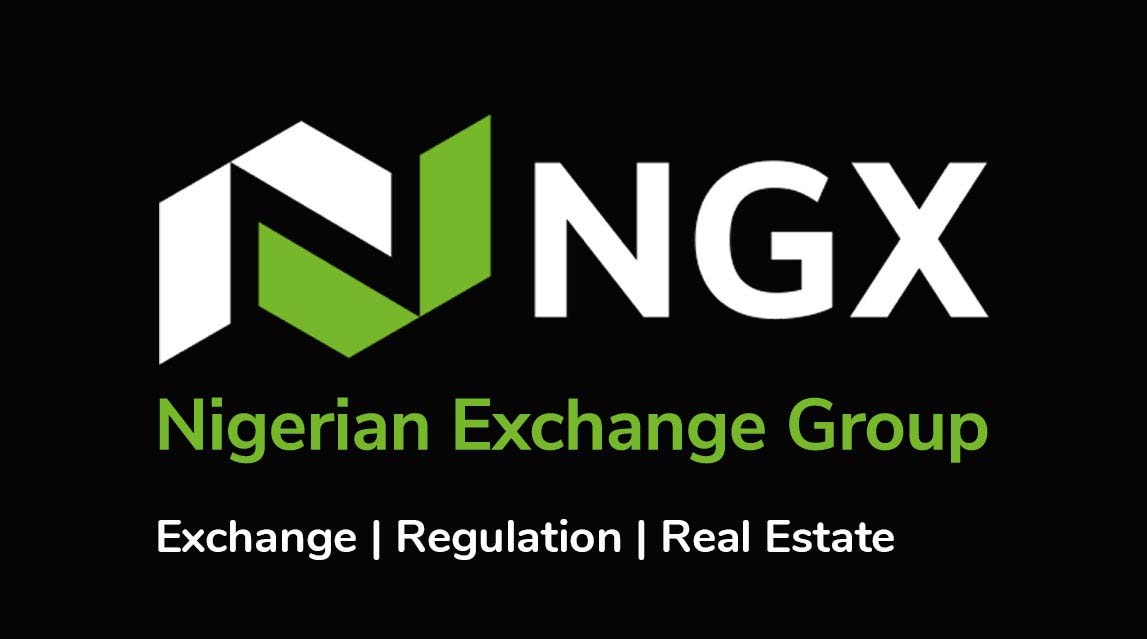Business
Naira drops by 0.90% at Investors and Exporters window

The Naira on Tuesday depreciated at the Investors and Exporters window, against the dollar, exchanging at N431.
The figure represented a decrease of 0.90 per cent compared with the N427.17 it exchanged to the dollar on Monday.
The open indicative rate closed at N427.30 to the dollar on Tuesday.
READ ALSO: Naira loses to dollar, exchanges at N426.58
An exchange rate of N444 to the dollar was the highest rate recorded within the day’s trading before it settled at N431.
The local currency sold for as low as N414 to the dollar within the day’s trading.
A total of 58.03 million dollars was traded in foreign exchange at the official Investors and Exporters’ window on Tuesday.
Business
PoS Operators Set To Challenge CAC In Court
In a bold move, Point of Sale (PoS) operators, led by the National President of the Association of Mobile Money and Bank Agents, are gearing up for a legal battle against the Corporate Affairs Commission (CAC).
The contentious issue revolves around the CAC’s recent directive mandating PoS operators to register with the commission.
President Fasasi Sarafadeen asserts that the directive violates existing legislation, particularly the Companies and Allied Matters Act, 2004, which “explicitly states that the commission has no jurisdiction over individuals not operating as a company.
He said, “According to section 863(1) of the Companies and Allied Matters Act, 2004, the order to enforce CAC directive on individual PoS agents operating under their name is wrong and will be challenged, as it contravenes the Companies and Allied Matters Act, Laws of the Federation of Nigeria, 2004, which explicitly states that CAC has no jurisdiction over individuals not operating as a company.
“We shall challenge it legally. The court will have to intervene in the interpretation of the quoted section of the CAMA if individuals operating as a sub-agent (likened to a bank branch) must register with CAC.
“CBN is right, no issue, the memo is clear, it only applies to non-individuals, unlike the Corporate Affairs Commission who generalised. We are in talks with the lawyer representing the association already, and a league of human rights lawyers whom we are not disclosing who they are for now.”
He explained that Point-of-Sale agents fall into two categories.
He said “CAMA only mandates registration of individuals operating as a company. There are two categories of POS agents: individuals and non-individuals. Individual agents operate under their names, such as Musa Caroline or Abubakar Audu, and are typically profiled with financial institutions under their names.
“Non-individual agents, on the other hand, operate under registered or unregistered business names, such as Wale Ventures or Johnson Enterprises. It is this second category of agents that the Corporate Affairs Commission can enforce the law on, as they are required to register their business names by the law.
“Sub agents are not carrying out as an independent company but branches of a company. For example, while commercial banks operate with bank branches across the country, Fintechs (MMO, super agents, and co) operate with a network of sub-agents. It is therefore lack of knowledge of the workings in a Fintech/agent banking industry to be tagging sub-agents as illegal.”
The head of AMMBAN stressed that the CAC’s priority should be addressing the alarming rate of business failures in Nigeria, rather than imposing regulatory obligations on individual POS agents operating under their names.
“The Corporate Affairs Commission should prioritise addressing the alarming failure rate of registered businesses in Nigeria, rather than targeting sub-agents. With over 4.9 million businesses registered, 50 per cent of which fail every five years, this should be the focus.
“In addition, the Central Bank of Nigeria’s memo specifically addressed non-individual agents, not individual sub-agents, and CAC’s threat to harass sub-agents is unwarranted and excessive.” He added
This new directive follows a series of fraud incidents involving POS terminals and the Central Bank of Nigeria’s plans to prohibit trading in cryptocurrency or any virtual currency.
According to a fraud report by the Nigeria Inter-Bank Settlement System Plc, POS terminals accounted for 26.37% of fraud incidents in 2023.
BIZTELLERS recalls that the CBN halted major fintech firms such as Kuda, Opay, PalmPay, and Moniepoint from accepting new customers.
Additionally, these companies were instructed to caution their customers against trading in cryptocurrency or any virtual currency on their platforms, with the warning of potential account blocks for those engaging in such activities.”
The CBN’s action was connected to an ongoing audit of the Know-Your-Customer process of fintechs, which have faced heightened scrutiny due to concerns about money laundering and terrorism financing.
Prior to the CBN’s directive, the Economic and Financial Crimes Commission had secured a court order to freeze a minimum of 1,146 bank accounts belonging to individuals and companies allegedly implicated in illicit foreign exchange dealings.
Business
NGX Lists N4.075bn AVA Infrastructure Fund

The Nigerian Exchange (NGX) Limited on Friday listed N4.075 billion of AVA Infrastructure Series 1 Fund on its trading platform.
This was revealed in a statement issued in Lagos, under the signauture of Head, Issuers Regulation Department, NGX, Godstime Iwenekhai.
He stated that “trading license holders are hereby notified of the listing of AVA Global Asset Managers Limited’s AVA Infrastructure Series 1 Fund of 4,075 units of N1 million each issued at par under the N200 billion issuance programme.”
Biztelers reports that AVA Infrastructure Series 1 Fund’s 4,075 units were listed on the Main Board of NGX at N1 million each as a closed-end Fund and naira-denominated unit trust scheme. AVA Capital Partners Limited is the Issuing House for the Fund, the Trustee to the Fund is STL Trustees Limited, Custodian of the Fund is United Bank of Africa Plc and the Registrar for the Fund is Cordros Registrars Limited.
Meanwhile, Securities and Exchange Commission (SEC) approved the N200 billion Infrastructure Fund of asset management firm, AVA Global Asset Managers Limited.
AVA Global Asset Managers recently launched its Series I issuance of the fund, sized at up to N200 billion on January 29, 2024 and closed on March 6, 2024, aim at bolstering infrastructural development within the country.
“The fund aims to address Nigeria’s infrastructure gaps by strategically channelling institutional capital into infrastructure projects and is designed to encourage innovative businesses in sectors such as power, telecommunications, agribusiness and supporting infrastructure, gas distribution, processing, and storage.
“The fund’s main objective is to deliver consistent and reliable income to unit holders through debt financing for infrastructure projects in Nigeria. It seeks to focus on projects or businesses that offer vital economic and social services, exhibit stable cash flows, and utilise long-lived assets,” the Company said.
The managing director of AVA Global Asset Managers, Mr. Efe Shaire stated that the fund aimed to strategically allocate private credit with a focus on impactful projects with robust and predictable future cash flows.
He emphasized the importance of private sector involvement in infrastructure financing, stressing the necessity for collaborative efforts, innovative financial products, and other strategic initiatives from private sector entities.
The listing of the fund on NGX is a clear indication of the growing interest and demand for sustainable investing in Africa and the Exchange’s commitment to the same. NGX is committed to give visibility to sustainable financial instruments listed on its platform and to encourage more listings in the sustainable finance segment as part of its sustainability drive for the capital market.
Business
SERAP, BudgIT, 136 Nigerians Ask Court To Order Tinubu To Stop Cybersecurity Levy

The Socio-Economic Rights and Accountability Project (SERAP), BudgIT and 136 concerned Nigerians have filed a lawsuit against the Central Bank of Nigeria (CBN) “over its failure to withdraw the patently unlawful ‘Circular’ directing all banks and other financial institutions to deduct from customers’ account a ‘cybersecurity levy’.”
Recall that the CBN had last week directed banks to implement a levy of 0.5% (0.005) equivalent to a half percent of all electronic transactions, and to remit the levy to the ‘national cybersecurity fund.’ The CBN relied on the Cybercrime Act 2015 [as amended]. The directive is to be implemented by Monday, May 20, 2024.
In the suit number FHC/L/CS/822/2024 filed last Friday at the Federal High Court, Lagos, the Plaintiffs are asking the court to determine “whether the CBN Circular dated 6th May 2024, directing financial institutions to deduct from customers’ accounts a cybersecurity levy is unlawful and therefore ultra vires the CBN.”
The Plaintiffs are also asking the court to determine “whether the CBN Circular dated 6th May 2024, directing financial institutions to deduct from customers’ accounts a cybersecurity levy and section 44(2)(a) of the Cybercrimes Act are not in breach of sections 14(2), 44(1) and 162(1) of the Nigerian Constitution 1999 [as amended], and therefore unconstitutional, null, and void.”
The Plaintiffs are asking the court for “a declaration that the CBN Circular dated 6th May 2024 directing all banks and other financial institutions to deduct from customers’ accounts a cybersecurity levy is contrary to the provisions of the Cybercrimes Act and ultra vires the CBN, and therefore is illegal null and void.”
The Plaintiffs are seeking “an order of interim injunction restraining the CBN, its office, agents, privies, assigns, or any other persons acting on its instructions from enforcing the Circular dated 6th May 2024, pending the hearing and determination of the motion on notice filed contemporaneously in this suit.”
The suit filed on behalf of the Plaintiffs by their lawyer Ebun-Olu Adegboruwa, SAN, read in part: “The CBN Circular is unlawful and an outright violation of the provisions of the Nigerian Constitution and the country’s international obligations.
“Unless the reliefs sought are granted, the CBN will enforce its Circular directing banks to deduct from customers’ accounts a cybersecurity levy. Millions of Nigerians with active bank accounts would suffer irreparable damage from the unlawful deduction of cybersecurity levies from their accounts.
“The provisions of the Cybercrimes Act on payment of cybersecurity levy strictly apply only to businesses listed in the Second Schedule to the Act. These provisions make no reference to bank customers, contrary to the CBN Circular to all banks and other financial institutions.
“The Nigerian government has a legal responsibility to ensure the security and welfare of the people, as provided for under section 14(2)(b) of the Nigerian Constitution and human rights treaties to which Nigeria is a state party.
“The CBN Circular is also a blatant violation of Nigerians’ human rights including the right to property guaranteed under section 44 of the Nigerian Constitution and article 14 of the African Charter on Human and Peoples’ Rights to which Nigeria is a state party.
“We urge the Honourable (Court) to grant the reliefs sought in the public interest and the interest of justice as well as to prevent arbitrariness and ensure the rule of law in the country.
“Any deduction of cybersecurity levy from Nigerians’ accounts would be contrary to the provisions of section 44(2)(a) of the Cybercrimes Act 2015 as amended by the Cybercrimes Prohibition, Prevention etc) (Amendment) Act 2024 and ultra vires the CBN, and therefore illegal, null and void.
“Section 162 (1) of the Nigerian Constitution provides that all revenues collected by or on behalf of the Government of the Federation are mandatorily required to be paid into the Federation Account save the revenue excepted by the provisions of the section.
“The National Cybersecurity Fund established by section 44(1) of the Cybercrimes Act 2015 [as amended] into which it is required to be paid the levy of 0.5% chargeable on all electronic transactions instead of the Federation Account is unconstitutional, null, and void.
“The CBN Circular is a breach and misinterpretation of Sections 44(2)(a) and 58 of the Cybercrimes Act [as amended], in that it purports to incorporate customers of the bank (neither defined by the Act nor designated by the CBN as financial institutions) as those to pay the cybersecurity levy.
“The Plaintiffs are customers of commercial banks in Nigeria with accounts domiciled with many commercial banks in Nigeria. The CBN is the statutory agency charged with the overall control and administration of the monetary and financial sector policies of the Federal Government.
“The Plaintiffs are included in the statistics of Nigerians with active bank accounts as the Plaintiffs are owners of accounts in different Banks and other financial institutions.
“As of 30 April 2024, commercial banks in Nigeria already charge exorbitant fees for electronic transactions, including Electronic Transfer Charges at N53.75 on any amount above N10,000, Stamp Duty of N50 on every transaction and Account Maintenance Charge deducted per month.”
The Plaintiffs are therefore asking the court for the following reliefs:
“A DECLARATION that the Circular issued by the CBN and dated 6th May 2024 directing all banks and other financial institutions to deduct from customers’ accounts cybersecurity levy is manifestly misleading, extorting and a breach and misinterpretation of the provisions of Section 44, 58 and Second Schedule of the Cybercrimes (Prohibition, Prevention, ETC) (Amendment) Act 2024 and ultra vires the CBN, and therefore is illegal, null and void.
“A DECLARATION that the Circular issued by the CBN and dated 6th May 2024 directing all banks and other financial institutions to deduct from customers’ accounts cybersecurity levy and section 44(2)(a) of the Cybercrimes Act are inconsistent with, and a breach of the provisions of Section 14(2), 44 (1) 162 of the Nigerian Constitution 1999 [as amended] and therefore unconstitutional, null and void.
“AN ORDER setting aside the Circular issued by the CBN and dated 6th May 2024 directing all banks and other financial institutions to deduct from customers’ accounts cybersecurity levy, for being misleading, extorting and a breach of the provisions of Section 44, 58 and Second Schedule of the Cybercrimes (Prohibition, Prevention, ETC) (Amendment) Act 2024.
“AN ORDER setting aside the Circular issued by the CBN and dated 6th May 2024 directing all banks and other financial institutions to deduct from customers’ accounts cybersecurity levy and section 44(2)(a) of the Cybercrimes Act, for being inconsistent with, and a breach of the provisions of Section 14(2), 44 (1) and 162 of the Nigerian Constitution 1999 [as amended] and therefore unconstitutional, null and void.
“AN ORDER restraining the Central Bank of Nigeria, including its agents, assigns, privies and or representatives or such other persons acting on its behalf, from enforcing the Circular issued by the CBN and dated 6th May 2024 against all banks and other financial institutions and their customers.
“ANY ORDER(S) that the Honorable Court may deem fit to make in the circumstance of this suit.”
No date has been fixed for the hearing of the suit.

















